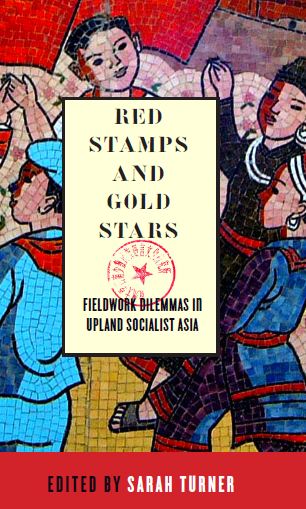Extract from Chapter 1: Dilemmas and Detours: Fieldwork with Ethnic Minorities in Upland Southwest China, Vietnam, and Laos
The topics at the heart of this collection interweave the professional, political, and private. By chronicling all the messiness, compromises, and ethical dilemmas that come with fieldwork in socialist Asia, the authors cast light on the realities of attempting to record and analyze the everyday life, practices, and challenges of ethnic minorities in China, Vietnam, and Laos. As human geographers or social anthropologists, we are all actively engaged in research with ethnic minorities in socialist Asia and have conducted in-depth fieldwork at our research sites either for continuous periods or during repeat visits, the latter in part reflecting the realities of fieldwork in socialist countries. In this volume, we scrutinize our positionality in the field, question the social scientist’s subjective gaze, and debate representations of “the other” and the importance of reflexivity in social science research. We do not shy away from deliberating over mistakes made along the way and the rewards that can come from such critical reflection. In turn, we hope that this volume can act as a partial road map, demystifying fieldwork and providing directions to help ease novice researchers – or those more experienced elsewhere but new to the region – into and through their fieldwork experiences, allowing for richer and more meaningful field encounters and interactions.
The principal organizing theme of this volume concerns the dilemmas that arise, the negotiations one must engage in, and the possible solutions that can be found when undertaking fieldwork among ethnic minorities in socialist China, Vietnam, and Laos. Alternative terms such as “market-socialism,” “socialist-market economy,” “transforming socialist countries,” “late-socialism” and “post-socialist” are also used when exploring contemporary events in the People’s Republic of China, the Socialist Republic of Vietnam, and the Lao People’s Democratic Republic, as well as “socialism with Chinese principles” and even “neoliberal elements interdigitated with authoritarian centralized control” (Harvey 2005, 120). First, one must note the important political differences between today’s Asian locales and “post-socialist” Eastern Europe and Russia. In the former Soviet Union and its satellites, state socialism collapsed in the late 1980s and the shift towards market integration and capitalism occurred rapidly as these states departed from Marxism. A small but growing literature on fieldwork in post-socialist Eastern Europe and the former Soviet Union includes edited collections by De Soto and Dudwick (2000), Hann, Humphrey, and Verdery (2002), and Hörschelmann and Stenning (2008), among others. Although important in their own right, the contributors here did not find these collections of direct use when stepping into the realm of socialist Asia. Economic reforms have been far more gradual in China (beginning in 1978), Vietnam (1986), and Laos (1986), while the socialist governments have also maintained a firm grip on centralized political control, with all three remaining single-party states. This results in a rather different milieu for undertaking fieldwork and especially for gaining access to ethnic-minority voices. Reflecting these political and historical differences from post-socialist Eastern Europe, in this volume most contributors continue to refer to China, Vietnam, and Laos as socialist; this choice was left to the individual.
A further characteristic of our work concerns the everyday realities that ethnic minorities in these three countries experience. The participants in our research are seldom in positions of political power or financial wealth, but neither are they passive victims of the changing circumstances that are entwining economic liberalization with centralized authoritarian political structures. Frequently, ethnic minorities quietly contest the “rules” of the lowland ruling majorities; they are well aware of the malleability of culture, history, and social relations (Turner 2012). Our research projects hope to shed light on the impacts of and reactions to such challenging circumstances as environmental change and deforestation, outside aid programs and their (un)intended effects, agrarian transitions and livelihood strategies, market integration, state ideologies, state/society relations, and the multiple impacts of globalization.
Not surprisingly, socialist rule in these countries plays a substantial part in shaping our fieldwork experiences as we attempt to answer our research questions. Many of the contributors to this volume have also undertaken fieldwork outside this realm, and this provides context for us to reflect upon how socialist rule impacts upon field relationships, working conditions, and perceptions. We are concerned with the establishment and maintenance of positive relationships in the field with ethnic-minority informants (who often become friends), political gatekeepers, and local researchers, as well as with how to generate and sustain trust. Working with ethnic minorities often generates a strong desire to help right wrongs and support local customs, perhaps in direct opposition to the state’s wishes. “Professional detachment” is neither an option nor a goal for any of us in this volume, and we explore the quandaries raised when trying to balance empathy with observation, and scholarship with advocacy.
Available in full online here.
Associate Professor Sarah Turner researches geographies of development and ethnic minority livelihood in Southeast Asia
 Facebook
Facebook  Twitter
Twitter  Soundcloud
Soundcloud  Youtube
Youtube  Rss
Rss 
